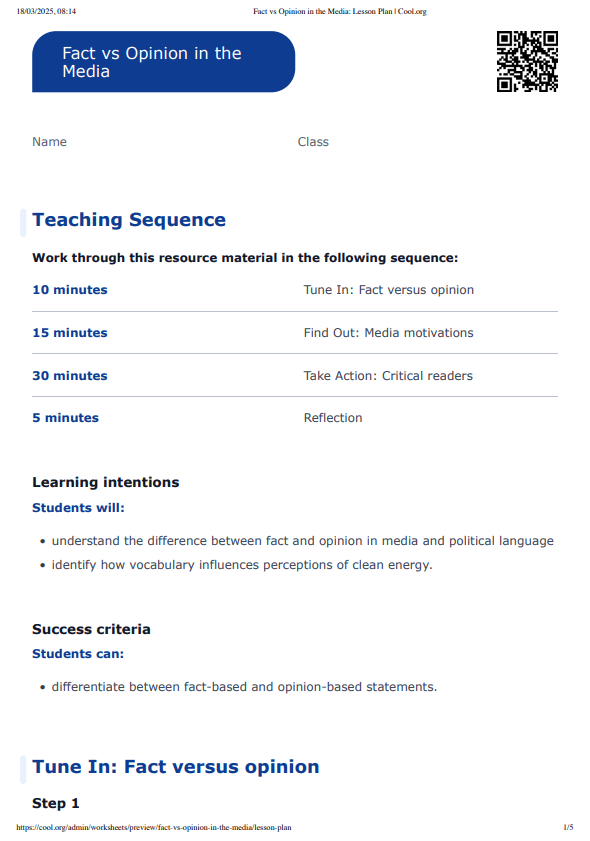Learning intentions
Students will:
- understand the difference between fact and opinion in media and political language
- identify how vocabulary influences perceptions of clean energy.
Success criteria
Students can:
- differentiate between fact-based and opinion-based statements.

